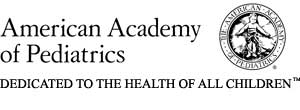

Preventing Shaken Baby Syndrome
Shaken baby syndrome describes the serious injuries that can occur when an infant or toddler is severely or violently shaken. These children, especially babies, have very weak neck muscles and do not yet have full support for their heavy heads. When they are shaken, their fragile brains move back and forth within their skulls. This can cause serious injuries such as:
Shaken baby syndrome usually occurs when a parent or other caregiver shakes a baby because of anger or frustration, often because the baby would not stop crying. Shaken baby syndrome is a serious form of child abuse. Parents should be aware of the severe injuries that shaking can cause. Remember, it is never okay to shake a baby.
If you or your caregiver severely or violently shakes your baby because of anger or frustration, the most important step is to get medical care right away. Immediately take your child to the pediatrician or emergency room. Don't let embarrassment, guilt, or fear get in the way of your child's health or life.
If your baby's brain is damaged or bleeding inside from severe shaking, it will only get worse without treatment. Getting medical care right away may save your child's life and prevent serious health problems from developing.
Be sure to tell your pediatrician or other doctor if you know or suspect that your child was shaken. A doctor who is not aware that a child has been shaken may assume the baby is vomiting or having trouble breathing because of an illness. Mild symptoms of shaken baby syndrome are very much like those of infant colic, feeding problems, and fussiness. Your pediatrician should have complete information so that he or she can treat your child properly.
|
When Your Child Cries, Take a Break-Don't Shake!
Taking care of an infant can be challenging, especially when an end to the crying seems nowhere in sight. If you have tried to calm your crying child but nothing seems to work, it's important to stay in control of your temper. Remember, it's never okay to shake, throw, or hit your child. If you feel as though you could lose control:
|
The recommendations in this statement do not indicate an exclusive course of treatment or serve as a standard of medical care. Variations, taking into account individual circumstances, may be appropriate.